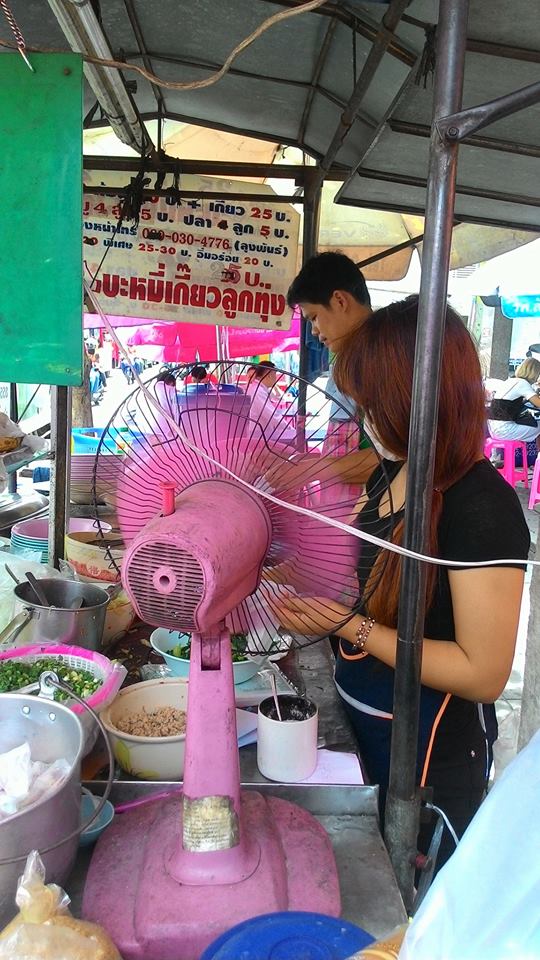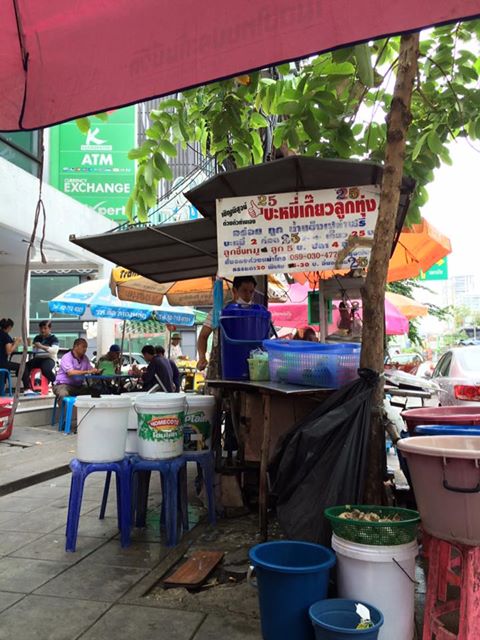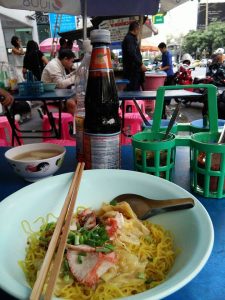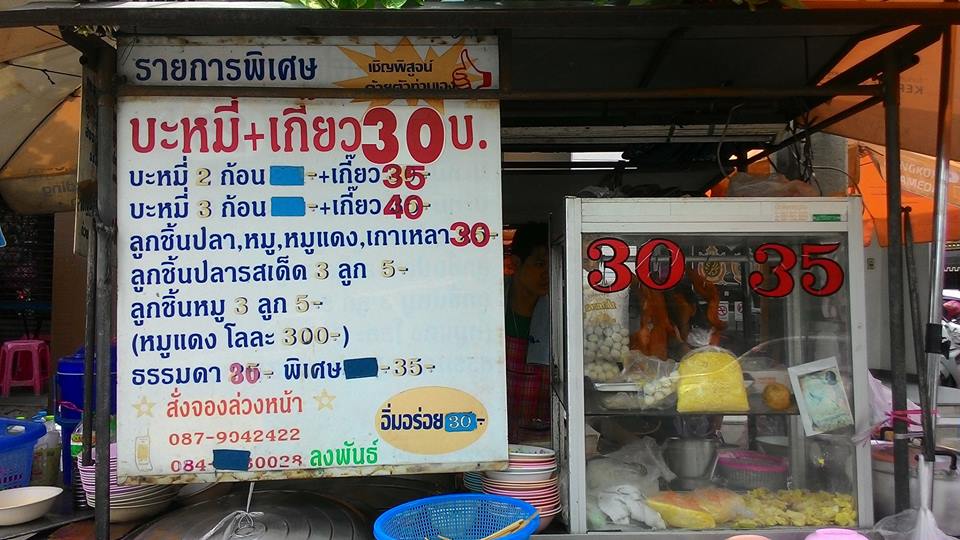For three decades, cops, builders, street cleaners and partying rich kids have come together to gorge on noodles at Uncle Pan’s streetside stall in Bangkok’s most hi-so neighborhood.
But now, the 67-year-old food vendor is no longer welcome at his pavement spot. He is yet another victim of the purge of street food stalls by the Bangkok Metropolitan Administration (BMA), who say they are cluttering Bangkok’s curbs.

With dishes that average THB35-55 a plate, most of the city’s street stalls don’t make a fortune selling their fare that spans from grilled seafood skewers to spicy papaya salads.
But they have won global acclaim as some of the finest fast food chefs in the world, fueling a booming city besotted by eating.
Like his peers, Pan Chaiyasit works behind a small push cart where he dishes out yellow egg noodles — topped with pork and wonton dumplings — to customers who cluster together on plastic chairs spread across the pavement.

The family-run stall is a fixture in a neighborhood that has exploded with development over the past few decades.
But with new laws being enforced this week that ban street food in Thong Lor, Ekkamai, and Phra Khanong, Pan must either uproot his restaurant to a new locale or downsize the shop so it doesn’t spill onto the sidewalk.
“I’ve been selling here since there was nothing,” the genial, apron-wearing uncle said, explaining that the Thong Lor area was a tree-studded backwater when he first set up.

Today, his customers sit ringside at a central artery of Bangkok’s ritziest neighborhood — the stall is located at the top of Thong Lor Soi 9 — surrounded by towering condos, upscale restaurants, and nightclubs.
That makes for a varied clientele that pulls from all layers of Thailand’s social fabric.
“Office workers, police, soldiers… even if they drive a Mercedes Benz, they have the same right to eat here,” Pan said, wiping away a bead of sweat as waiters buzzed around him to serve the after-work crowd.

On a good month, Pan rakes in around THB30,000. But his sales rely on his close ties to the neighborhood.
“We all know each other on this street. Everyone, factory workers, company staff, they know me and we are friends…if we move, we won’t have these relationships.”
Yet city officials insist the foot paths must be “returned to the public” and have laid out a plan to bar tens of thousands of street stalls from the capital’s main roads, instead squeezing them into side streets or hawker centers as they do in Singapore.
Pan isn’t sure what the future holds — other than more bowls of soup.
“Even though we sometimes face trouble, we have to keep selling. We have to fight to survive.”




